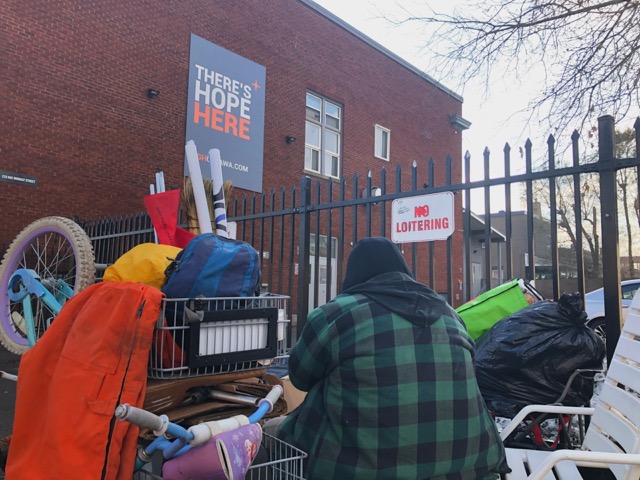A joint committee made up of a majority of council members has endorsed a first-of-its-kind financial plan for the City of Ottawa to increase housing and reduce homelessness.
Mayor Jim Watson said on Tuesday the staff-proposed long-range financial plan for housing services will give the city more credibility when asking for funding from the provincial and federal governments.
Watson said when cabinet ministers have asked how much the city needs for housing priorities, city officials have “had to skate around that a little bit” because there weren’t exact numbers on the books.
With a financial plan, “they’ll know we’re serious when we meet with them,” Watson said during a meeting of the finance and economic development committee and community and protective services committee.
The 15-4 vote in favour of recommending the financial plan to council on March 10 came after nearly four hours of questions and debate by council members, plus presentations from four public delegates.
The financial strategy responds to a housing and homelessness plan for 2020-2030 endorsed by council last year.
The 10-year plan, which comes with a $1-billion price tag, aims to reduce homelessness by 25 per cent and wipe out chronic homelessness. Another goal is to create between 5,700 and 8,500 affordable homes through construction of new units and providing subsidies.
The city intends to pay about 21 per cent of the costs of the housing and homelessness plan, while relying on the upper governments to cover the rest.
For the municipal government, it would mean an average annual commitment of $21 million over 10 years. Another $81 million per year, on average, would be required from the upper governments.
City finance and housing staff came up with a financial plan they believe is affordable and realistic for the municipal government. They propose phasing in increases to the tax-supported municipal budget over four years to reach a new base level of funding.
Ray Sullivan, executive director of the Centretown Citizens Ottawa Corp. and president of the Social Housing Registry of Ottawa, warned council members there’s not enough attention to preserving existing housing, on top of building new homes.
“We need to do both, but the funding commitment to maintain what we got is equally important,” Sullivan said.
Housing advocates have also been pushing the city to act more quickly to create affordable housing, especially coming out of the pandemic.
John Dickie, chair of the Eastern Ontario Landlord Organization, pointed to a significant increase in Ottawa’s vacancy rate during the pandemic while urging the city to establish head leases and secure available units.
Dickie predicted as more people receive COVID-19 vaccines there will be an increased demand for rental housing, particularly in the downtown areas, as people return to their pre-pandemic practices.
Some councillors were skeptical of the city’s planned spending and its priorities for huge amounts of money.
Coun. Catherine McKenney, council’s liaison for housing and homelessness who was one of the four councillors voting against the financial plan, questioned the city’s intention to earmark millions of dollars for transitional housing instead of using the money to supply permanent housing.
The financial plan calls for $30 million to develop new transitional housing for families and women and reduce the city’s reliance on hotels and motels for temporary homes.
Donna Gray, the city’s general manager of community and social services, described a “a continuum of care,” with the city offering support programs through transitional housing before equipping families with housing benefits and setting them up with homes.
About 12,500 households were on a central wait list for affordable housing at the end of December 2020, committee members heard.
Shelley VanBuskirk, the associate general manager who has overseen the housing file at city hall, told members that early indicators suggest homelessness was down in 2020, though a full data crunch would be done in the spring.
Some of the decrease could be attributed to people sleeping unsheltered to avoid contracting COVID-19 and new federal benefit programs, VanBuskirk said.
































